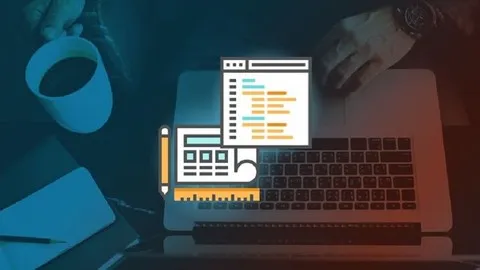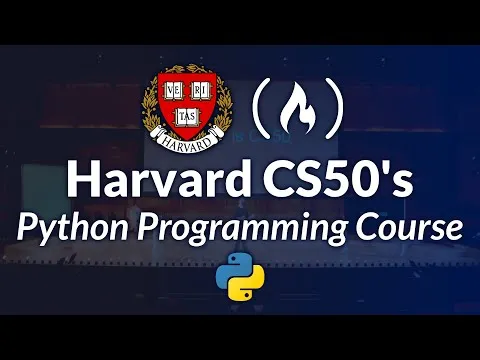
Java Programming-Strings-basics for beginners 
This free course provides a fast and efficient way to learn the basics of strings in Java programming. Perfect for beginners! ▼
ADVERTISEMENT
Course Feature
![]() Cost:
Cost:
Free
![]() Provider:
Provider:
Udemy
![]() Certificate:
Certificate:
No Information
![]() Language:
Language:
English
![]() Start Date:
Start Date:
Self Paced
Course Overview
❗The content presented here is sourced directly from Udemy platform. For comprehensive course details, including enrollment information, simply click on the 'Go to class' link on our website.
Updated in [April 29th, 2023]
This course, Java Programming-Strings-basics for beginners, provides an introduction to the concept of strings in Java. It covers the basics of strings, including how to create, manipulate, and use them. All videos in this course are available to the student for the rest of their life, allowing them to review the material whenever they need. Additionally, the course covers the concept of arrays in Java, providing the student with a comprehensive understanding of the topic.
[Applications]
After completing this course, learners can apply their knowledge of Java programming strings to create more complex programs. They can also use the concepts learned in this course to develop applications that involve manipulating strings. Additionally, learners can use the skills acquired in this course to debug and troubleshoot existing programs that involve strings.
[Career Paths]
1. Java Developer: Java Developers are responsible for developing and maintaining applications using the Java programming language. They are also responsible for troubleshooting and debugging existing applications. With the increasing demand for mobile applications, Java Developers are in high demand and the job outlook is expected to remain strong.
2. Software Engineer: Software Engineers are responsible for designing, developing, and testing software applications. They must have a strong understanding of programming languages, such as Java, and be able to work with a variety of software development tools. With the increasing demand for software applications, Software Engineers are in high demand and the job outlook is expected to remain strong.
3. Web Developer: Web Developers are responsible for creating and maintaining websites. They must have a strong understanding of HTML, CSS, and JavaScript, as well as a good understanding of Java. With the increasing demand for web applications, Web Developers are in high demand and the job outlook is expected to remain strong.
4. Database Administrator: Database Administrators are responsible for managing and maintaining databases. They must have a strong understanding of database systems, such as Oracle and MySQL, as well as a good understanding of Java. With the increasing demand for data-driven applications, Database Administrators are in high demand and the job outlook is expected to remain strong.
[Education Paths]
1. Bachelor of Science in Computer Science: This degree path provides students with a comprehensive understanding of computer science fundamentals, including programming languages, software engineering, computer architecture, and operating systems. Students will also learn about the latest trends in computer science, such as artificial intelligence, machine learning, and data science.
2. Bachelor of Science in Information Technology: This degree path focuses on the application of technology to solve business problems. Students will learn about the design, development, and implementation of information systems, as well as the management of information technology resources. They will also gain an understanding of the latest trends in information technology, such as cloud computing, mobile computing, and cybersecurity.
3. Master of Science in Computer Science: This degree path provides students with an advanced understanding of computer science topics, such as algorithms, data structures, and software engineering. Students will also gain an understanding of the latest trends in computer science, such as artificial intelligence, machine learning, and data science.
4. Master of Science in Information Technology: This degree path focuses on the application of technology to solve business problems. Students will learn about the design, development, and implementation of information systems, as well as the management of information technology resources. They will also gain an understanding of the latest trends in information technology, such as cloud computing, mobile computing, and cybersecurity.
Pros & Cons

Inbuilt functions used.

Basic content about strings.

Gives basic knowledge in programming.

Refreshes memory and teaches new concepts.

Good little training to know more about strings.

No reasoning explained.

Java naming conventions not applied.

Accent made it difficult to understand.

Not enough explanation for programs.

No small exercises in between.
Course Provider

Provider Udemy's Stats at AZClass
Discussion and Reviews
0.0 (Based on 0 reviews)
Explore Similar Online Courses

Day Trading in Stocks: Strategies for Beginner Investors

Learn Final Cut Pro X Course Beginner To Intermediate

RDBMS PostgreSQL

Intro To PostgreSQL Databases With PgAdmin For Beginners

PostgreSQL: Client Applications

Mastering SQL using Postgresql

Database Design and Basic SQL in PostgreSQL

PostgreSQL: Advanced Queries

Spatial SQL with Postgres : A language for geographers

Learn SQL Using PostgreSQL: From Zero to Hero

PostgreSQL Essential Training


Start your review of Java Programming-Strings-basics for beginners